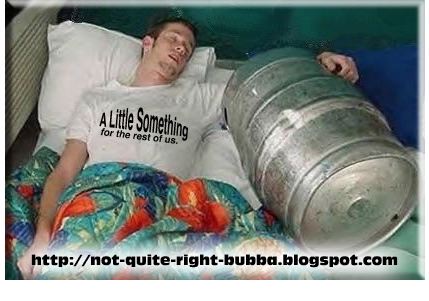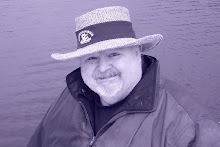Friday, February 22, 2008
Writing Outside The Box
Everything smelled of sheep. The dandelions were suddenly more sheep than flower, each petal reflecting wool and the sound of a bell ringing off the yellow. But the thing that smelled the most like sheep, was the very sun itself. When the sun went behind a cloud, the smell of the sheep decreased, like standing on some old guy’s hearing aid, and when the sun came back again, the smell of the sheep was loud, like a clap of thunder inside a cup of coffee.
That afternoon the sheep crossed the creek in front of my hook. They were so close that their shadows fell across my bait. I practically caught trout up their assholes. —Richard Brautigan, Trout Fishing In America, 1967, Houghton Mifflin Company (by permission)
If you asked me to define edgy writing, I wouldn’t hesitate a second to answer. “Richard Brautigan”, I’d say. His work should grace the library of every edgy writer. Every morning, one should wake up and pour him/herself a Brautigan tonic as a bracer, slugging it down to shock a lethargic, post-somnambulistic system like astigmatism making itself at home behind your optic nerve or sprinklers going off in a park where John Dillinger’s body lies in repose.
Feel the burn… understand the hunger, own the desire to move the elephant into the living room. Smelled of sheep… do you remember how Grandma smelled when she leaned down and forced you to allow her to kiss you, smiling and cooing, cool fleshy flaps of skin suddenly smearing spit all over your cheek as every atom in your body struggled to bolt? You can’t capture the odor except in the context of the universality of common experience. Brautigan’s brilliance created similes that gave anthropomorphic qualities to plants, rivers, the sun… he related human experiences in the context of the natural world, at a level that requires supernatural realization. He creates a world of ‘could have been’ or ‘might possibly be’ or ‘if x then why not y, even though y doesn’t exist on a plane that some humans accept as real’. He bounds, undaunted, into a twilight world of what the word-snobs call ‘quasi-reality’, the ‘almost real’. And by doing so, he slips the fetters binding other writers with cold, hard reality. He expands the possibilities, linking the grace and poetic beauty of the great masters with the stark, in-your-face slap of everyday living. His elixir alerts you to the burn that makes you edgy. Enjoy it with gusto; wallow in its sensitivity and immerse your mind in his pool, suspend your disbelief.
Reality. What is it exactly? Most people accept a more-or-less universal concept of it, but no one has license over it. The five senses don’t adequately explain reality in total. My reality may not exist for you at all, and that’s okay. Reality’s domain is different for every creature, every plant, every breeze that blows. Some kids grow up thinking that if they don’t get knocked around at least once a day, daddy doesn’t love them. A large number of humans have never seen a skunk or a double-bladed timber axe or a coffee cup, yet they still have a concept of their use if their other senses get involved in the process. Helen Keller could not see, hear nor speak; yet she created a world of beauty for herself, within herself—then she shared it with us. Helen Keller was one edgy lady; her reality existed on a different, higher plane.
I’ve heard good writing described as ‘capturing life on the page’. For the most part, I’d be inclined to agree with this assessment, especially when uttered by creative writing professors or others qualified to make such assertions. Further, I’ve been taught that the singular quality that links all good writing is its ability to make the words ‘jump off the page’. Obviously, there would seem to be a contradiction at work here.
Given the inability of any act to accomplish two different events simultaneously due to the Einsteinian subscription to the limits placed on the natural world, one must assume that if something can jump off the page, it cannot, by definition, be captured. So, given my perceptional difficulties with the concepts, I choose to ignore the contradiction and commit myself to capture life on the page and jump on it, no matter whether or not it offends your sense of reality and/or fair play. Yes, the elephant can come inside my house, so long as he promises not to drink my beer or harass the toilet/tiger.
Subscribe to:
Post Comments (Atom)





9 comments:
One thing we can learn from the ultimate writers' writer, Richard Brautigan, is that there is no need for good writing to subscribe any laws of logic, Einsteinian or otherwise, the function of the artist is to discover boundaries by crossing them, which is to say, RRRRage on, big fella,
bravo!!!! i think you know... i am there...110%..... loved this post.
Applause from my corner as well!
Hello Bob,
Nicely done and your excerpt from Brautigan is much appreciated. Your take on reality not being fully explainable by the senses is very interesting, and as for the contraction - that two events cannot happen simultaneously I agree, and think that the capture and jump happen sequentially.
I loosen thoughts from my mind where they were contained, and then re-contain them as words on a page, and with any luck they then will loosen and jump from the page and be re-captured by the minds of interested readers.
And with this post I think you did get lucky, for now I am thinking about a great many things…
Be Well
Hi, everyone...
Thank you for your words. Obviously, you all 'get it'. Writing is art, pure and simple, and like art, it should contain some amount of evocation as a precept to its existence... without that, it contains no color.
"The “classical” post-Einstein view is that time is an illusion to keep everything from seeming to happen all at once. From the mathematical view, there’s a lot of truth to that."
This is another blogger stating his theory about how many things can take place within a given time frame.
Great write...sorry I'm late.
When I start to compose a comment, sometimes my eyes skim over the words already written, and usually it's repeating a sentiment, but you've got it right about Brautigan.
And that's one of the best ways I've heard him discussed as far as capturing the *what* that his words do for me.
I think his ability to crack the heart open in the tiny spaces is pretty formidable too. Like that handful of words that comprise one of my favorites, 'Boo, Forever'
Spinning like a ghost
on the bottom of a
top,
I'm haunted by all
the space that I
will live without
you
Very funny...and preposterously close to the nail being hit on the head...
amuirin-- I could read his poetry for days... and the magic exists in the fact that I take something different from it each time. In "The Pill versus The Springhill Mine Disaster", he included this poem, one of my favorites:
December 30
At 1:03 in the morning a fart
smells like a marriage between
an avocado and a fish head.
I have to get out of bed
to write this down without
my glasses on.
Poetman-- Thanks... you folks are the best.
Post a Comment